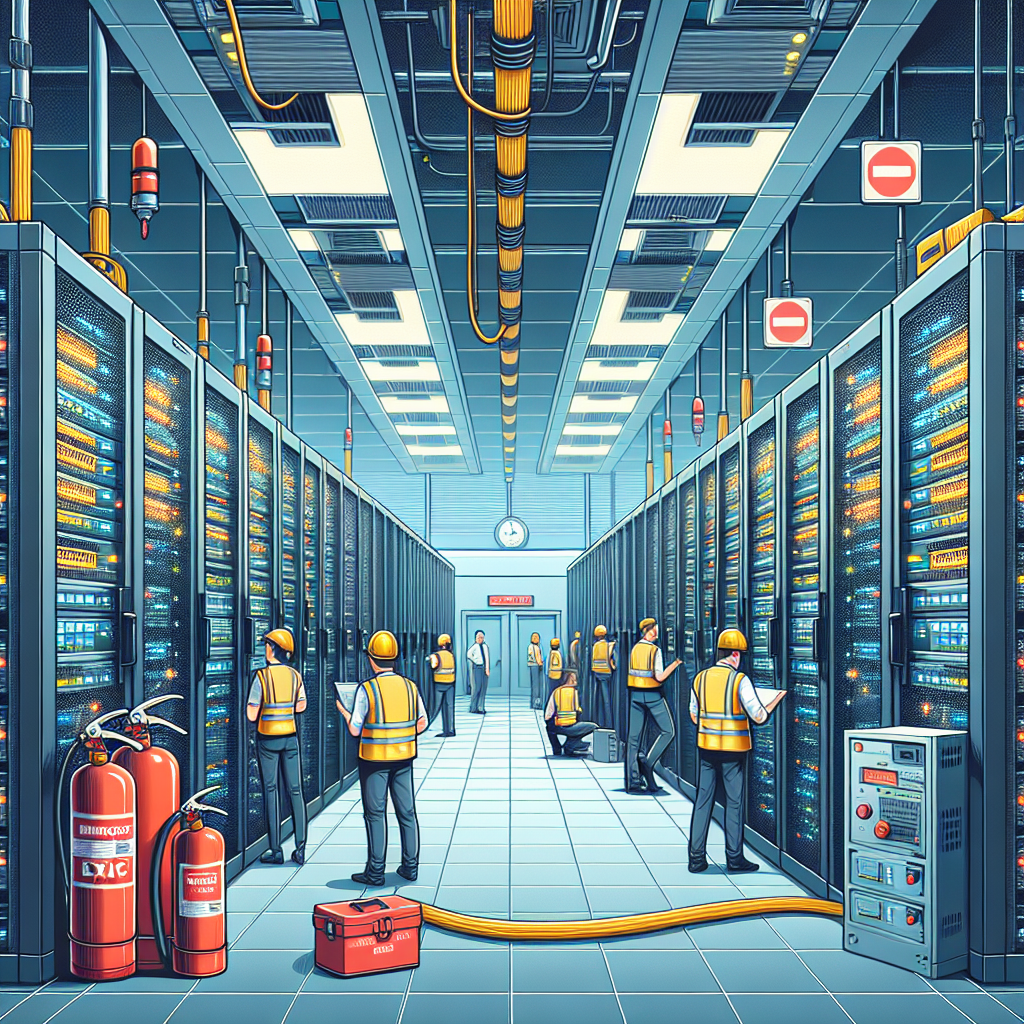Your cart is currently empty!
A Comprehensive Guide to Data Center Safety

Data centers are the backbone of modern businesses, providing the infrastructure and technology necessary for storing, processing, and managing vast amounts of data. With the increasing reliance on data centers for critical business operations, ensuring their safety and security is of utmost importance. In this comprehensive guide, we will explore the key aspects of data center safety and provide actionable tips for maintaining a secure environment.
Physical Security Measures
One of the first lines of defense for a data center is physical security measures. This includes access control systems, surveillance cameras, and security guards to prevent unauthorized access to the facility. Access control systems can include biometric readers, keycard access, or PIN codes to restrict entry to only authorized personnel. Surveillance cameras should be strategically placed throughout the facility to monitor all areas and provide real-time monitoring of any potential security threats. Security guards can provide an additional layer of protection by patrolling the premises and responding to any security incidents.
Fire Safety
Fire safety is a critical aspect of data center safety, as the equipment and data stored within the facility are highly sensitive to fire damage. Data centers should be equipped with fire detection and suppression systems, such as smoke detectors, fire alarms, and sprinkler systems, to detect and extinguish fires quickly. Regular maintenance and testing of these systems are essential to ensure they are functioning properly in the event of a fire emergency. Additionally, data centers should have fire evacuation plans in place and conduct regular fire drills to ensure that personnel are prepared to respond to a fire emergency effectively.
Electrical Safety
Electrical safety is another crucial aspect of data center safety, as data centers are powered by high-voltage electrical systems that can pose serious risks if not properly maintained. Data centers should adhere to electrical safety standards and regulations, such as NFPA 70E and OSHA electrical safety guidelines, to prevent electrical hazards and ensure the safety of personnel. Regular inspections and maintenance of electrical systems, such as circuit breakers, power distribution units, and UPS systems, are essential to identify and address potential electrical issues before they cause harm.
Environmental Safety
Environmental safety is also important in data centers, as the equipment and data stored within the facility are sensitive to environmental conditions such as temperature, humidity, and dust. Data centers should be equipped with environmental monitoring systems to ensure that the temperature and humidity levels are within the optimal range for the equipment. Additionally, data centers should have proper ventilation systems and air filtration systems to prevent dust and contaminants from affecting the equipment. Regular maintenance and cleaning of these systems are essential to ensure the continued operation of the data center.
Data center safety is a multifaceted issue that requires a comprehensive approach to address the various risks and threats that can impact the facility. By implementing physical security measures, fire safety protocols, electrical safety measures, and environmental safety practices, data centers can ensure the safety and security of their operations. Regular training and education of personnel on safety procedures and protocols are also essential to create a culture of safety within the data center. By following these guidelines and best practices, data centers can maintain a secure and safe environment for their critical operations.

Leave a Reply